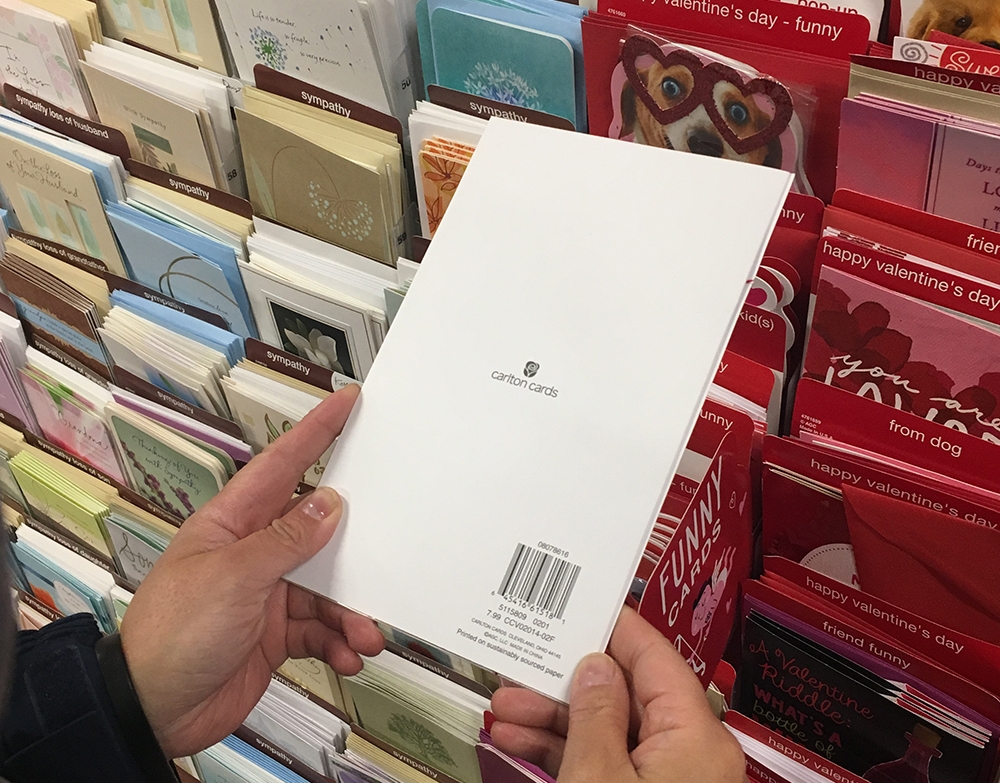Priya Saha | Contributor
Featured image: Greeting cards can be traced back to ancient Chinese and Egyptian traditions where they created cards. | Victoria Fung
Have greeting cards become a thing of the past? Have they become a tradition that will be completely wiped out by the rise of the internet and social media?
The once-thriving industry is struggling to remain relevant in the age of digital technology, and with significant changes in lifestyle, demographics and the economy, greeting card sales are declining faster than ever.
Hallmark, one of the largest greeting card companies, stated in its July 2016 trend report that its revenues have declined to $401.7 million USD in the past five years, a decline of six per cent.
So what is changing about the greeting card industry, a once successful and in-demand business? This age-old tradition can be traced back to the time of the ancient Chinese and Egyptians. The Chinese welcomed in the new year by sending messages of good will to friends and family, while the Egyptians sent a wide assortment of greetings printed on papyrus scrolls.
Handmade greeting cards became popularized in Europe during the 1400s, and cards specifically designed for Valentine’s Day began being exchanged in 1415. They gained immense popularity during the 1880s as a result of the launch of the Penny Post in England, making postage increasingly affordable.
The idea of the holiday greeting card, also known as the Christmas card, was conceptualized by Sir Henry Cole in 1843 when he hired artist John Calcott Horsley to create a holiday greeting that he could distribute among his friends and family. Horsley liked the idea of a greeting card, as he did not have the time to personally write a holiday wish for friends and family. To this day, greeting card companies like Hallmark generate the highest sales during Christmas time, followed by Valentine’s Day.
If greeting cards were created to save time, then why are we not embracing them anymore? The younger, tech-savvy generation seems to have abandoned sending these cardstock creations in favour of e-cards, as they can be customized to fit a diverse number of occasions, from Eid to Diwali.
The rising cost of postage does not seem to be benefiting the future of the greeting card.
But if these cards were popular once upon a time, what can be done to bring them back? Hallmark is attempting to capture the attention of younger consumers with the creation of meme-like cards.
Cindy Mahoney, president of Hallmark Canada, said that the Canadian greeting card market significantly differs from the American one because it is divided on the basis of economics. There is a market for simple affordable cards and one for more elegant and elaborate cards. As a result, Hallmark cards range in price from $0.99 to about $10 per card.
There are also separate markets for Francophones and Anglophones, and Hallmark is attempting to revamp its French cards to tap deeper into the market. The United Kingdom still has a prominent card industry with its market value increasing to £1.7 billion in 2015, an increase of five per cent.
One of the main questions asked is: do greeting cards hold any sentiment anymore in our consumer-oriented society, or is it all about purchasing the most hip card in the shop?
Cards are generally more popular for sentimental occasions like Mother’s Day or Valentine’s Day, as physical reminders capture the significance of sentiments, a quality which a digital card cannot compete with.
With paper cards now incorporating technological aspects, it helps consumers customize their greeting, ensuring that purchasing the card with the most bells and whistles attached to it attains a strong significance.
At the end of the day, the ageold tradition of a handwritten message on paper is one of the most gentle and emotional mediums of conveying meaningful messages.
This offers some hope for this traditional cultural industry, at least for the next couple of years. There is still some time before we will have to send the greeting card industry a see-you-never card.


